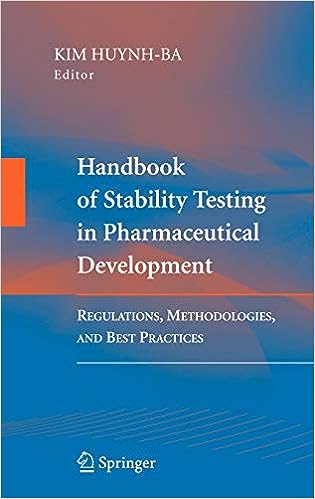Good Manufacturing Practices (GMP) are essential quality assurance guidelines and procedures that ensure pharmaceutical products are consistently produced and controlled to meet quality standards appropriate for their intended use. GMP regulations apply to all aspects of pharmaceutical manufacturing, including stability testing, to ensure the reliability, integrity, and compliance of stability data.
Key Principles
GMP principles that apply to stability testing include:
- Quality Management System (QMS): Establishment of a robust QMS that encompasses organizational structure, responsibilities, procedures, processes, and resources for stability testing activities.
- Documentation and Record Keeping: Maintenance of accurate, complete, and contemporaneous documentation and records for all stability testing activities, including protocols, reports, data, and deviations.
- Personnel Training and Qualification: Training and qualification of personnel involved in stability testing to ensure competency, awareness, and adherence to GMP requirements and standard operating procedures (SOPs).
- Facilities and Equipment: Provision and maintenance of suitable facilities, equipment, and utilities for stability testing, including environmental controls, storage conditions, and calibration of instruments.
- Material Management: Control of raw materials, intermediates, and finished products used in stability testing, including receipt, storage, handling, labeling, and documentation.
- Quality Control: Implementation of quality control measures, including analytical methods, reference standards, specifications, and acceptance criteria, to ensure the accuracy and reliability of stability testing results.
- Validation and Qualification: Validation and qualification of stability testing methods, equipment, and processes to demonstrate their suitability, reliability, and reproducibility.
- Change Control: Management of changes to stability testing procedures, methods, equipment, facilities, or materials through a controlled change control process to ensure continued compliance and data integrity.
- Deviation and CAPA Management: Investigation, documentation, and resolution of deviations and out-of-specification (OOS) results encountered during stability testing through a corrective and preventive action (CAPA) system.
- Internal Audits and Inspections: Conduct of regular internal audits and inspections to assess compliance with GMP requirements, identify areas for improvement, and implement corrective actions.
Regulatory Compliance
Stability testing conducted in accordance with GMP regulations ensures regulatory compliance and facilitates product registration, approval, and marketing authorization. Regulatory agencies, such as the U.S. Food and Drug Administration (FDA), the European Medicines Agency (EMA), and the International Council for Harmonisation (ICH), provide guidelines and requirements for stability testing in support of product quality and safety.
Conclusion
Good Manufacturing Practices (GMP) are essential in stability testing to ensure the reliability, integrity, and compliance of stability data and support the quality, safety, and efficacy of pharmaceutical products. By adhering to GMP principles and regulatory requirements, pharmaceutical companies can demonstrate the consistency, reliability, and integrity of their stability testing processes and data, ultimately ensuring the quality and safety of medicines for patients.
